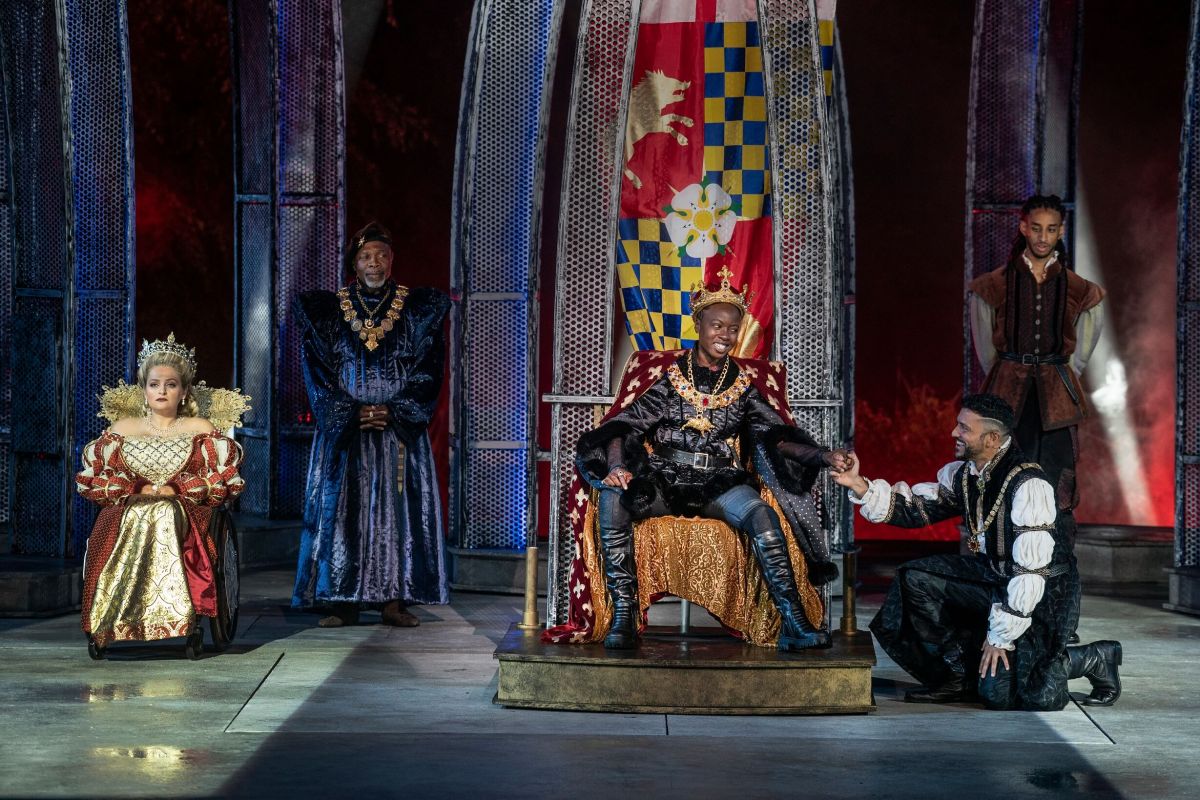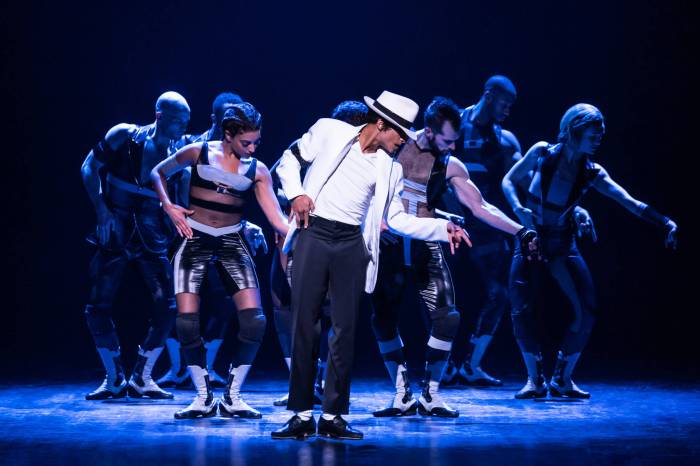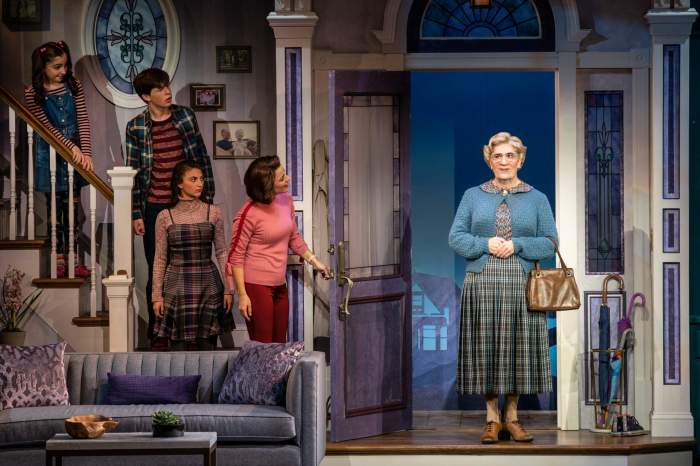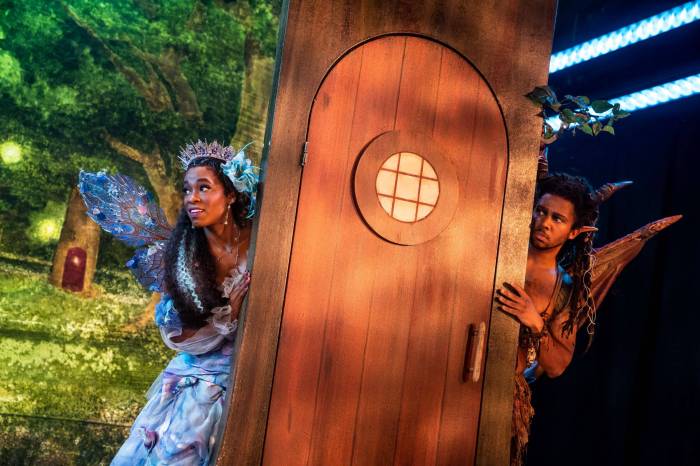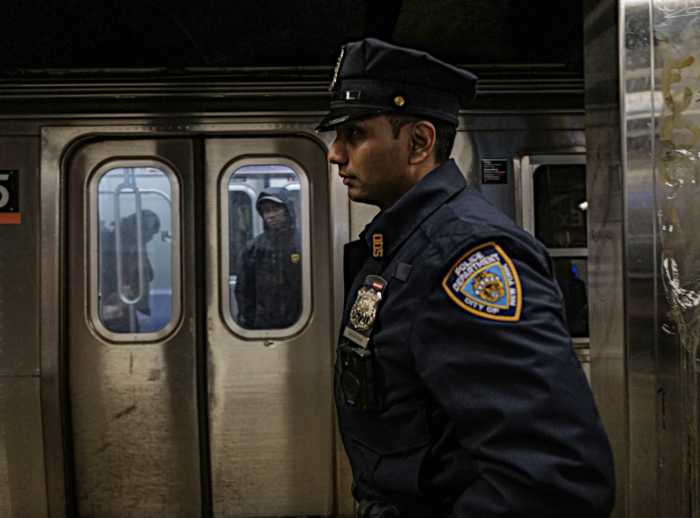Shakespeare’s “Richard III” has always been a political play. Written around 1592, the bloody tale of a craven tyrant was meant to support the legitimacy of the Tudors on the throne. The accession of Henry VII ends civil war, establishes the Tudors, and restores order and peace to England. Over the centuries, the play has been produced countless times, and production often focuses on the danger of tyranny to the state.
There is, however, something more subtle — and chilling — going on in director Robert O’Hara’s powerful and often spellbinding “Richard III,” now at the Delacorte in Central Park. Richard, who wants power for power’s sake, is portrayed with complexity and power by Danai Gurira, a woman and person of color. The threat to England is not tyranny, but incompetence fueled by bloody rage and the battles between the houses of Lancaster and York in The War of the Roses. O’Hara has emphasized Richard’s willingness to kill any perceived enemies and betray people loyal to him to reach his own ends. The present-day implications are inevitable, as are some unmistakable, and mordantly funny, bits of staging that are like visual Easter eggs.
This is, however, a problematic play. The structure is episodic, largely a series of scenes that are set pieces with action interspersed with commentary. O’Hara has embraced this structure, and while it works to build and advance the story, it may seem choppy to a contemporary audience. For example, Queen Margaret has a long speech decrying the royalty, their cruelty, and the subjugation of women. While this can be interpreted as Shakespeare further arguing for Elizabeth I’s right to the throne, it takes on an eerie resonance in light of the Supreme Court’s recent overturning of Roe v. Wade.
An imperfect play provides a nearly perfect night of theater, proving again that there are few experiences as quintessentially New York as Shakespeare in the Park. The company is uniformly outstanding and the cast largely works. Gurira is a cunning and deliciously evil Richard, but the role is played without any of the disability nature described in the text.
Sanjit DeSilva is outstanding as Buckingham. Handsome and charismatic, he is the picture of loyalty to Richard, but proves himself venal and vengeful when Richard reneges on a promise of lands and wealth. DeSilva also manages a very modern sensibility while capturing Shakespeare’s text beautifully. Daniel J. Watts is superb as Ratcliffe, a role that often gets lost, but as the last man loyal to Richard, he powers on until he, too, is destroyed. Heather Alicia Simms is sympathetic and lyrical as Queen Elizabeth, and Ali Stroker is on fire as Anne. Yet for pure Shakespearean thrills, Sharon Washington is a revelation as Queen Margaret. The dowager queen, wife of Henry VI (two kings ago for those keeping track), Margaret is often played as insane. Washington, however, has a clear-eyed ferocity that foretells the destruction ahead and stands for the power of good over evil. It is a bravura performance well deserving of the applause she receives on her exit.
The simple set, with metal gothic arches lit in different colors on revolving turntables, is both striking and expressive of the chaos within the kingdom. Dede Ayite’s costumes are in the vein of “timeless classical,” which, like the set, use elements and especially patterns and fabrics to compelling effect.
The timeless tale and its harrowing relevance to our time, especially since Richard gains initial popularity and the throne by lying to a credulous populace, is — despite a few reservations — a fitting and exciting production for the 60th anniversary of Shakespeare in the Park.
The Coronation Was Stolen | An impressive, contemporary production of Shakespeare’s “Richard III” in Central Park | Tues-Sun 8 p.m. through July 17
Richard III | The Public Theater at the Delacorte Theater, Central Park | Free | Information on in-person ticketing and lotteries here. (https://publictheater.org/about/press/21-22/richard-iii)

